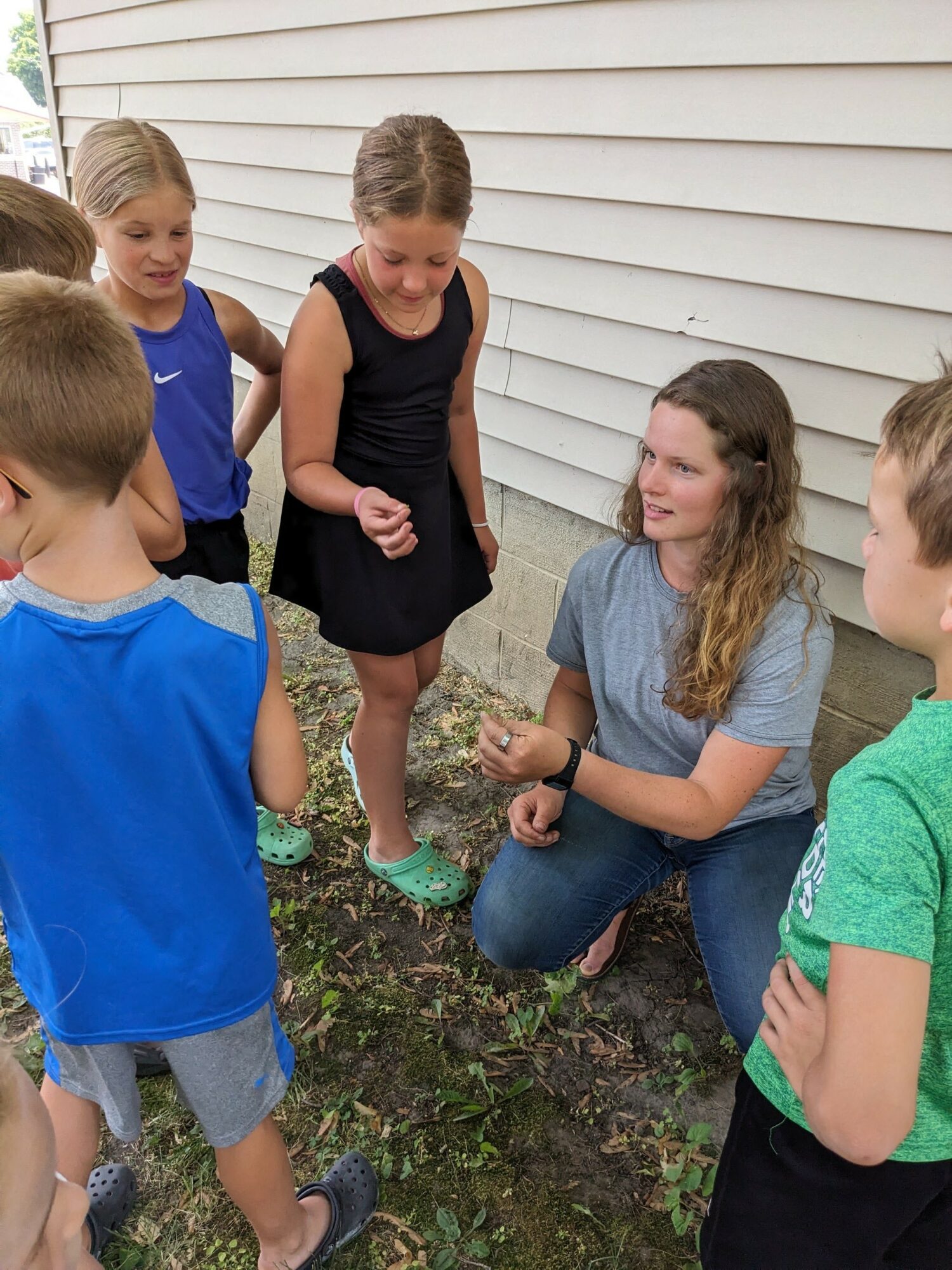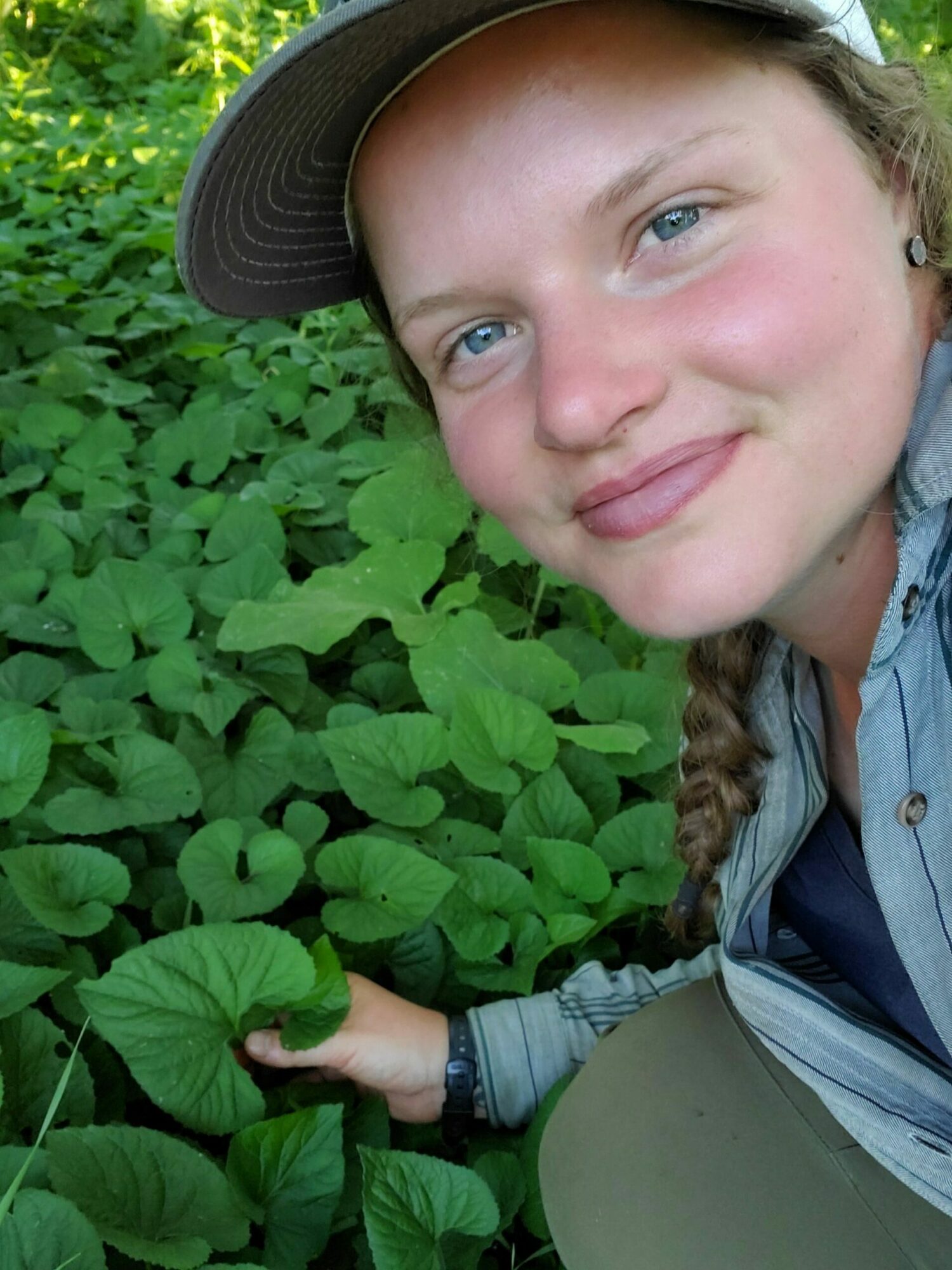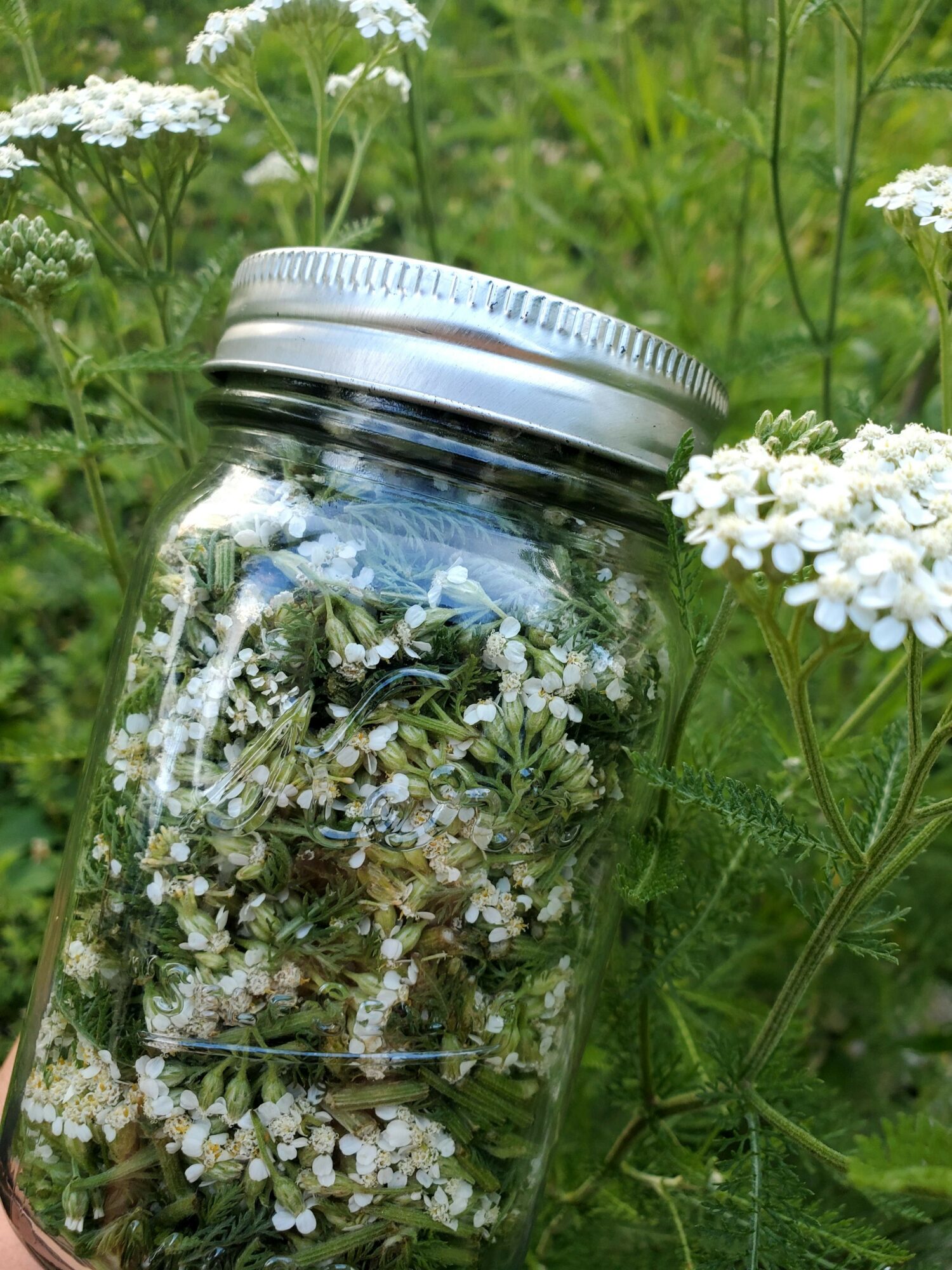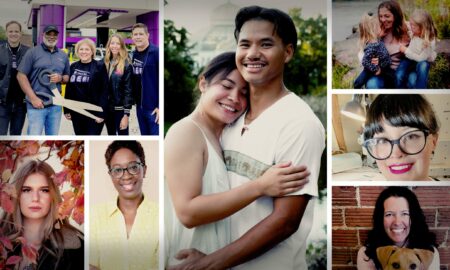

Today we’d like to introduce you to Kara Swenson.
Kara, we appreciate you taking the time to share your story with us today. Where does your story begin?
I always admire the stories of the herbalists whose journey begins with them making potions, soups, and crowns in the woods with the plants all around them, but that isn’t how my journey began. Instead, my journey takes a more slow and meandering path.
I grew up (and lived most of my life so far) on a 70 acre farm in rural SE Minnesota- which my father tended in a regenerative way, chemical-free with rotationally grazed animals and a wide variety of plants/trees/shrubs/etc. When my siblings and I were young, we were more or less expected to be outside, especially in the summer when there was no school work to be done. Once I was a little older, I had gotten a small digital camera and photography became one of my favorite hobbies. I loved photographing various plants, flowers, and landscapes – even though at the time, I really didn’t have much interest in what the plants were, I simply loved capturing them. Growing up, I also watched my dad collect and dry seemingly random plants from around the farm (random to me, not to him). There was a shelf full as can be of unlabeled jars in the kitchen cabinet for years. I didn’t really think anything of these mystery jars until I was a teenager when one day I must have been looking through them and was pulled toward one in particular. I asked my dad if I could make it into tea and, since he actually knew what that specific one was, he said I could. I very much enjoyed it and it became a tea I often went back to (and still make to this day). My dad knows I like it so much that he has since gifted me jars of the dried herb – which he calls Lucerne but most know it as Alfalfa.
Another noteworthy aspect of my journey was when I was just 14 years old. I was in the hospital receiving treatment and observation soon after officially being diagnosed with Major Depression and Anorexia Nervosa. I can vividly remember sitting on the hospital bed thinking “there has to be another way, there has to be a more natural way (to heal)” while being prescribed medications for the depression and being told how I would be eating. Western medicine was the only thing my parents knew to turn to for help at the time and I didn’t have the knowledge yet to suggest any other treatment/care for myself either.
I am grateful to my parents and to the team of doctors and nurses that saved my life — and — it was not western medicine that reignited my vitality or my passion, it was nature, community, and other, holistic and natural modalities of healing that helped me do that.
I don’t think I will ever forget or lose touch with that deep, deep knowing that there must be other ways to support the body in healing. I didn’t have the words or the knowledge to explain or back up what I felt when I was just 14 years old, but since then, the feeling has only gotten stronger and I continually have more words, more knowledge, and more wisdom to share around the knowing that I feel within.
Even before the eating disorder, food and nutrition were of interest to me – along with nature/Earth and continually learning. In high school careers class, I remember scoring high for health-related occupations and environmental-related occupations. Ultimately, after high school, I chose to pursue a degree in Dietetics (even though I didn’t agree with the philosophy of dietetics- even then). After 3 semesters and being on track to graduate early, I decided to leave the program to explore other options. It didn’t take too long before I found a B.S. in Integrative Nutrition program that better aligned with my beliefs and values.
As I completed the schooling to get a B.S. in Integrative Nutrition, I worked at a busy chiropractic and nutrition office as a Patient Advocate for the Nutrition Practitioners and patients. After just one year as a Patient Advocate, I was asked if I would like to become a practitioner – which I knew I did, with some encouragement from my support network. I proceeded to complete the training and became a Nutrition Response Testing Practitioner to the professional level.
While working as a Nutrition Practitioner, I journeyed deeper into my own healing – decades old traumas were ready to be processed and integrated/released. I knew the power and value of whole food supplementation to support the body in healing through something as significant as this yet my system much preferred the homeopathic and herbal remedies instead- something that both applied kinesiology/muscle testing and my own intuition agreed upon. I knew how supportive homeopathic and herbal remedies were for the body since I worked with them with many of my patients in the clinic but my own experience of them as part of this deep healing work was incredibly powerful and insightful.
Alongside the homeopathic and herbal remedies, I utilized somatic and parts-based therapy and I spent as much time as I possibly could in nature. I quickly re-discovered that nature is medicine in itself and that I am a more grounded person when I get my fill of vitamin N(ature). Nature was, and still is, my refuge and my greatest teacher.
After about six years of practicing as a Nutrition Practitioner, working one-on-one with patients in the same office, I made the hard decision to leave that position to pursue herbalism in a much deeper way and to start my own practice.
To deepen my knowledge and wisdom of the plants all around me, the medicine that they carry, and how to work with them safely and effectively with clients, I’ve had several wise teachers. Some of these teachers include: Lise Wolff, jim mcdonald, Matthew Wood, Margi Flint, Jessica Belden, and of course the plants themselves. I am honored to have been able to study under so many incredible herbal teachers and it is an invaluable gift to be able to spend time with and learn directly from the plants themselves – in living form, in medicine form, by working with them myself, and through clients working with them. Learning plant medicine is a lifelong journey and it is a journey that I am so excited and honored to be on.
Since starting my own practice in 2022, I’ve considered myself to be more an herbalist than I do an integrative nutritionist but my schooling, training, and years working as a Nutrition Practitioner absolutely have and do influence my work as an herbalist.
I’m sure it wasn’t obstacle-free, but would you say the journey has been fairly smooth so far?
Getting to where I currently am certainly hasn’t been clear or easy and although the challenges are not fun in the moment, I wouldn’t be who I am today or where I am today without them.
Looking back on my life and my journey so far, it is easy to spot the challenges that were more obvious or outward such as the various times of deep healing, dropping out of one University and starting at a new one, leaving a job I loved to pursue the calling that was on my heart, juggling working another job while establishing/building Thistle Patch Wellness… But if I am being honest, some of the most challenging aspects of this journey have been more inward and less obvious (at least to the world around me).
The questions and doubt-filled thoughts within my mind come with their own amount of challenge and struggle. I am sure I am not alone in this as any entrepreneur knows that your own business/practice will ask things of you most any other job won’t. It’ll have you face your fears, insecurities, doubts, beliefs, and patterns. It’ll stretch you out of your comfort zone and it’ll ask you to get comfortable being seen. Plus, it’ll test and have you get serious about your boundaries, values, and desires. Having your own business/practice almost guarantees some degree of self-growth, regardless of what your business/practice is in.
Even outside of the thoughts that’ve had a tendency to make their way into my mind, there has also been the struggle of simply starting an herbal practice. In many ways, since starting my practice, I have been paving my own path as I have found that many folks in my community don’t quite understand or know what an herbalist does or how an herbalist could help them or their family/friends. So, as much as I am passionate about helping individuals and families along their health journeys, I must also continue educating folks about what it is I do and how I am able to help.
Whenever I find myself in self-doubt or feeling unsure about what to do/where to go within my practice, I call on the plants and they always have a way of bringing me back to my roots and reminding me of the foundation that my whole journey rests on – which if I were to summarize it: the Earth holds the healing and the body is designed to heal.
Thanks for sharing that. So, maybe next you can tell us a bit more about your business?
My practice is named Thistle Patch Wellness. Since I was a child/young teen photographing plants and flowers on the farm I grew up on, thistles were some of my favorites to photograph and I have admired them ever since. Even beyond that, thistles feel symbolic to one’s healing journey as thistles only thrive on land that is needing healing in some way… this is where Thistle Patch Wellness comes in.
I love working with individuals and families who either believe in preventative medicine and/or believe in healing by supporting the body through natural approaches: herbal remedies (tinctures, flower essences, salves), dietary/lifestyle modification, and also chiropractic, acupuncture, and other related modalities. I love working with individuals/families who either understand or are open to the idea that the body, mind, and spirit are not separate but rather they are interconnected and when on a healing journey, all aspects of the person need to be considered. It is also really important that those who work with me understand that I am not the one healing them but rather they are healing themselves through the help of the plants with guidance from me.
Although I am not specifically specialized in any particular condition or symptom pattern at this time, I often work with individuals with digestive distress, mental/emotional distress, hormonal/women’s cycle concerns, and “mystery” conditions/symptoms (aka symptoms and conditions that haven’t been able to be helped via western medicine).
When I think about the things that set me apart, a couple things come to mind. One thing is that I take my relationship with the plants that I work with as seriously as the relationship I have with each client. This is important because as a practicing bioregional herbalist, it is my job to know the plants as well as the person in front of me so that I can best match the person with the plants. I am, more or less, a matchmaker between the plants and people. Another thing that sets me apart is how I determine the herbal protocol for the individual. A big part of how I determine which plants to recommend for each person I work with is of course knowing the plants and the person, but in order to determine which plant combination is going to best support the person, I utilize pulse testing and muscle testing. These two non-invasive modalities allow me to tune in with the clients system/body to “see” how well their body may respond to each remedy as well as the protocol as a whole. I am even able to determine specific dosages for each herb using these techniques.
Something that I take pride in is that I take the time needed with each client I work with. Most follow-up consultations last between 30-60 minutes. This allows time for the client and myself to explore what has been going on since the previous consultation (both positives and challenges), for me to test them for herbal remedies via pulse and muscle testing, and for me to offer education and proper guidance on any recommendations I may have for them.
My primary offering is one-on-one herbal consultations which I offer in person in Eagle Lake and Zumbrota. I also teach a variety of workshops/classes throughout the year and lead local plant walks May-September/October. Plant walks are one of my foundational offerings because connecting the people and the plants are a really important component of the work that I do. Plant walks allow folks to learn how to identify as well as how to work with (food and medicine) the plants that grow wild all around them.
Is there any advice you’d like to share with our readers who might just be starting out?
Looking back to when I was first starting out, I am grateful I had a mentor who is also a practicing and teaching herbalist (Lise Wolff in Minneapolis, MN). Lise is still my mentor to this day and I couldn’t imagine not having her to offer advice, bounce ideas around with, and be encouraged by. So with that said, that would be my first piece of advice- find someone who is doing what you want to be doing (or close to it) and see if they would be willing to be your mentor.
Other advice/wisdom I have would be:
– Starting a practice and/or being an entrepreneur is more like a marathon than it is a sprint. Take your time exploring what works for you and what doesn’t. Don’t be afraid to try something different or new even if it may not make sense to others at first.
– Failure is inevitable – at least to some degree. Allow the “failures” to be opportunities for growth and learning. Don’t let the fear of getting something “wrong” hold you back. Try and try again!
– Whatever you do, do it from a place of authenticity and passion – however that may be for you.
Contact Info:
- Website: https://www.thistlepatchwellness.com
- Instagram: https://www.instagram.com/thistlepatchwellness
- Facebook: https://www.facebook.com/thistlepatchwellness/



















